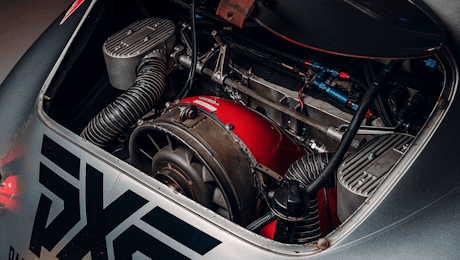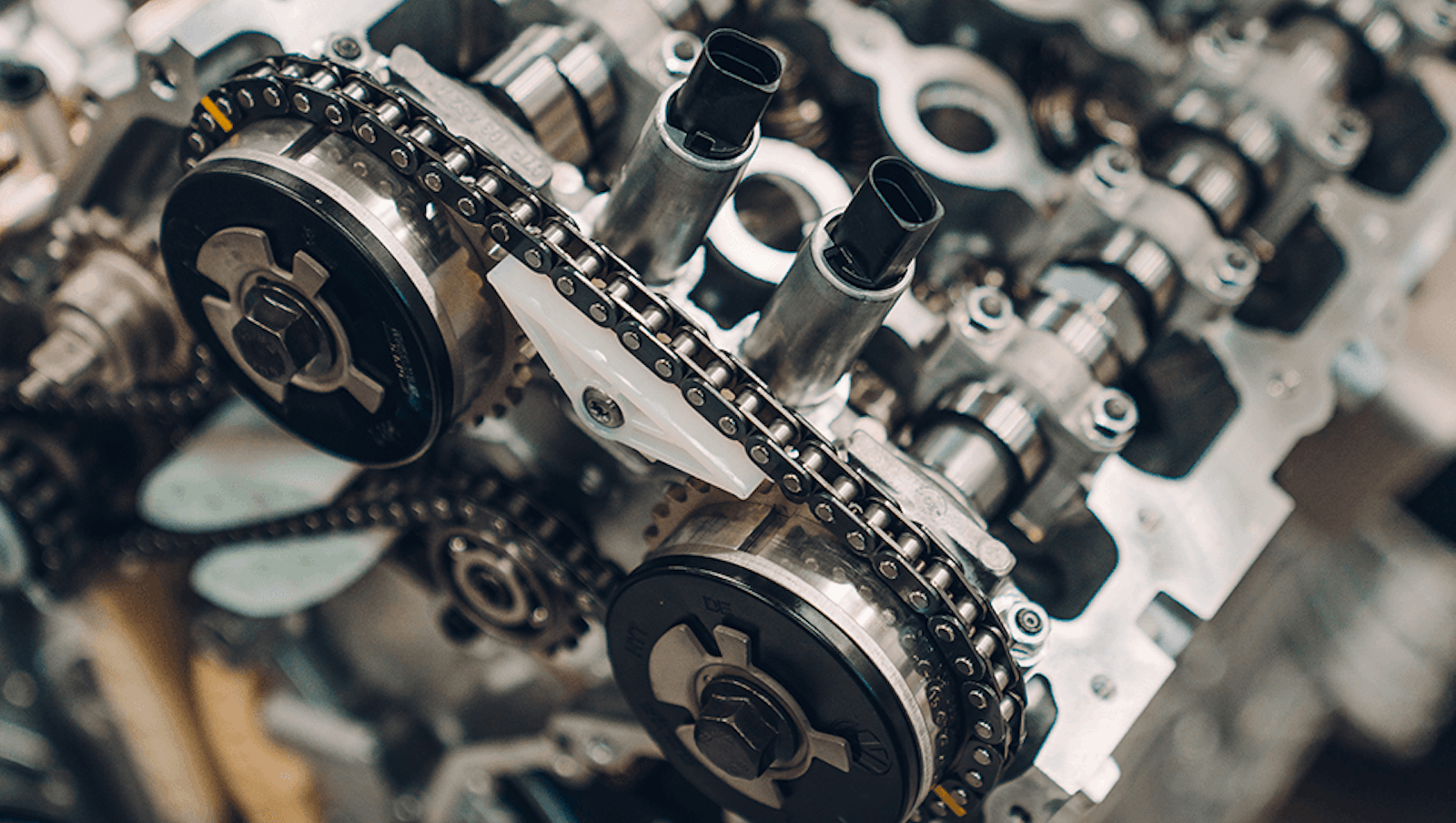What is horsepower and why does it matter?
August 17, 2022 by carwow staff

If you’ve had a conversation about cars at all, you likely know of the term ‘horsepower’. But what is horsepower, exactly?
Well, this guide explains all about this measurement of power including what it means, how it’s calculated and what relation it actually has to horses.
What does horsepower mean?
What is horsepower? It’s a figure used to measure the power of an engine and is often abbreviated as hp. In simple terms, it’s how much ‘work’ the engine is capable of.
There’s more science behind a car’s speed than sheer power, but it does have one of the biggest impacts on the overall performance of a car — in particular, its ability to accelerate.

Though in the UK we use the term horsepower when referring to the metric measurement, it has other names elsewhere — and there’s a variety of other equivalent measurements too. Including:
- PS — this stands for pferdestarke in German, which literally translates to horsepower. This is the most commonly used measurement in Europe and is the exact equivalent to horsepower in measurement.
- CV — similarly to PS, this is a direct equivalent to horsepower. This is a French acronym, standing for chevaux-vapeur.
- bhp — brake horsepower is a term you may be familiar with, particularly if you read a lot of UK car magazines. More to come on this one.
- kW — this stands for kilowatt and, in terms of cars, is used most commonly in Europe for electric car power outputs. 1kW is the equivalent to about 1.3hp.
HP vs BHP
Traditionally in the UK, brake horsepower (bhp) has been the go-to measure of a car’s power. While hp does not take into account frictional losses in power from an engine, brake horsepower does — meaning hp is always higher than bhp.
The difference between the two is small on a 1:1 basis. 1hp is the equivalent to just under 0.99bhp, though scaled up you’ll notice differences. For example, a car with 300hp would then have 296bhp.

Manufacturers typically now publish power figures in horsepower, though old habits die hard — with a lot of traditional car magazines still using a conversion to bhp as the blanket measurement.
When comparing a car’s performance, make sure to compare like-for-like rather than hp vs bhp as a result. It doesn’t matter all that much what your preferred measurement is — although hp will always sound slightly more impressive if you’re boasting to your friends.
How is horsepower measured?
You may have heard theories that one horsepower is the equivalent to one horse, and that’s kind of true — just not in the way you may expect.
Horsepower is actually a completely made-up measurement. Back in the late 1760s, steam engine pioneer James Watt wanted to compare the effectiveness of his engines against the horse that previously did their work.
Watt defined one horsepower as the equivalent of the energy expended by a single horse raising 33,000 pounds of water one foot in the air from the bottom of a 1,000 foot deep well in 60 seconds.
Granted, that’s not an easy thing to imagine, but it did allow Watt a way to easily market his steam engines to potential customers.

Before you get ideas, manufacturers don’t plant cars in front of wells and pull water to work out how much performance they have nowadays. Rather, a device called a dynamometer (more commonly known as a dyno) is used to calculate its force.
How does horsepower impact a car’s performance?
As a simple rule, the more horsepower a car has — the faster it can go in a straight line.
An easy way to imagine the impact of more power is to imagine you’re pushing a car yourself. Now, if a friend came to help you, there’s more force behind it and thus you can push it faster, easier and further.
It’s not quite as simple as that, granted. For example, upgrading a 100hp car to have 200hp won’t make it twice as fast. There are other factors to consider — with key ones being weight, grip levels and aerodynamics.
Horsepower has less of an effect the higher your speed is, with aerodynamic efficiency playing an ever-more key part as you get faster.
Horsepower Vs torque
The output of an engine is measured in two key ways: horsepower, and torque. Torque is a the motoring equivalent of the offside rule in football: much is spoken about it, but often explanations are unclear.
In essence, torque is the turning force and engine can exert, while power is how hard an engine can work.
Think of a spanner on a nut: a short spanner will not be able to exert very much torque, whereas a long spanner will deploy much more; how hard you turn the spanner is the equivalent to horsepower: turn it hard and you will be deploying a lot of power; give it a little tap and you will not be exerting very much.
Diesel engines typically have more torque and less power, whereas petrol cars tend to have more power and less toque.
Why you should consider horsepower when buying a car
Because it will fundamentally affect how your car performs on the road. A car with a not-very-powerful engine (75hp, for example) will not be able to accelerate very hard, whereas a car with lots of power (500hp+) will have strong acceleration. The car’s weight will have a large impact on acceleration too, as the heavier the car, the more power is required to move it. That’s why small city cars tend not to have powerful engines, while large SUVs do.
If you travel a lot on the motorway, you are likely to want a more powerful engine, as you will want to be able to accelerate quickly along slip roads while joining the road, and accelerating at speed (IE when overtaking) is also much easier if you have a powerful engine.
If you have a less powerful engine, on a motorway you will typically need to accelerate hard to make progress, typically needing to change down a gear or two while using high engine revs that will be noisy.
People who regularly tow caravans, trailers and the like will also want powerful engines, as the extra weight will require more power to get things moving – although actually torque is a tow car’s best friend, hence why many caravanners have diesel cars.
Horsepower FAQs
Does one horsepower equal one horse?
Horsepower was originally created based on a single horse lifting 33,000 pounds of water one foot in the air from the bottom of a 1,000 foot deep well. This was used by James Watt to provide context to the performance of his steam engines. So yes, it does equal one horse — but not quite in the way you may think.
What is considered good horsepower in a car?
‘Good’ horsepower is very subjective depending on the car. Other factors such as weight, mechanical grip, aerodynamics and even just the purpose of the car need to be taken into account.
What horsepower does my car have?
A quick search on the internet should be able to uncover a manufacturer’s stated figure for your car. If you’d like to find out the exact performance of your car, you can hire a dyno session to have it measured.
What’s the difference between horsepower and torque?
Horsepower is a measurement of how rapidly a car’s engine can work. Torque is the peak measurement of the rotational force within an engine.
What car has the most horsepower?
The Rimac Nevera electric hypercar produces 1,914hp, making it the most powerful car in the world. The 1,600hp petrol-powered Bugatti Chiron SS follows the Rimac.
Can I increase the horsepower of my car?
Yes, but you will need to modify the engine. The most common way of doing this is by having a car ‘chipped’, meaning its electronic brain will be reprogrammed to feed more fuel into the cylinders, change when the spark plugs ignite the fuel, increase how hard a turbocharger blows, and a couple of other factors. Chipping a car to produce more horsepower can put more strain on an engine though, while it will also invalidate any manufacturer warranty, plus it will affect how much it costs to insure the car.
How much horsepower does a ‘normal’ car have?
Depends on the car. A ‘normal’ supercar might have 500hp, a normal city car might have 90hp or so, while a normal family hatchback could have 140hp. A car with less than 100hp can be hard work outside of town, though.
Do electric cars have horsepower?
Yes: an EV’s motor, powered by the batteries, exerts horsepower, which is measured and expressed in the same manner as with petrol and diesel cars. Electric cars deploy their power in a different way, though, being able to be at maximum output immediately, rather than needing to be ‘revved out’ to their optimal speed like a petrol or diesel engine.
Cars Change? Carwow!
Looking for a new set of wheels? With Carwow you can sell your car quickly and for a fair price – as well as find great offers on your next one. Whether you’re looking to buy a car brand new, are after something used or you want to explore car leasing options, Carwow is your one stop shop for new car deals.















